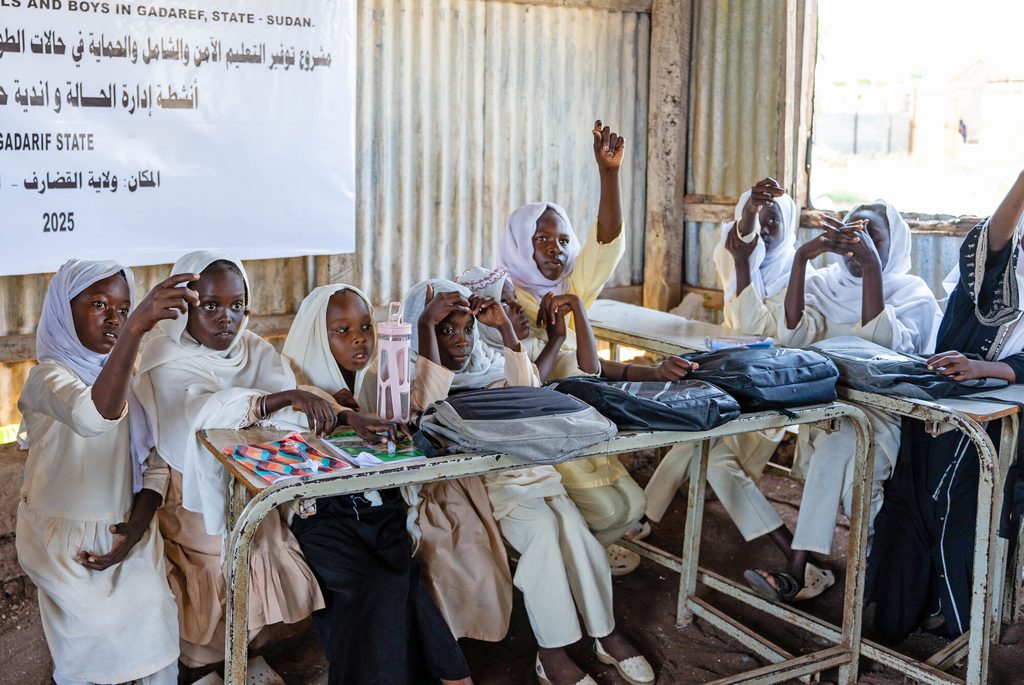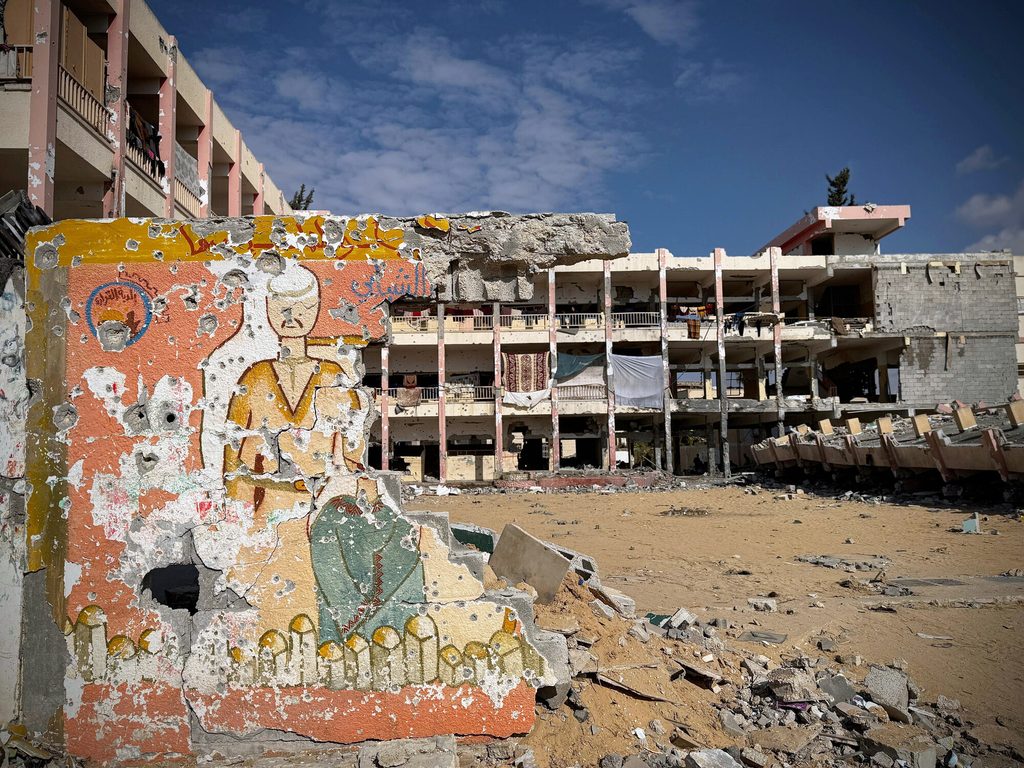Why protecting education in conflict is a global imperative
9 November 2025A decade on, the Safe Schools Declaration remains as vital as ever, and the world must act now. Plan International’s Head of Global Education in Humanitarian Action, Emilia Sorrentino and Education in Emergencies Specialist, Lucy Strickland, explain why.

This November, the world marks the 10th anniversary of the Safe Schools Declaration – a global commitment endorsed by 121 States to protect students, teachers, and schools during armed conflict.
Born from a simple, powerful idea that schools must be safe havens for children, even in the midst of conflict, this was a commitment to protect students, teachers, and their places of learning from the ravages of conflict.
Risking it all to learn
Sadly, despite this noble promise, attacks on education in conflict zones have reached alarming levels.
In 2024, there was a 44% increase in attacks on schools, leading to the death, abduction, and trauma of thousands of students and teachers.
These attacks have forced thousands of students and teachers from their homes, led to long school closures, and, in the most tragic cases, resulted in the killing of educators.
This is not just an attack on buildings; it is an assault on hope.

Devastating impact on funding cuts
The reduction in foreign aid by some of the world’s largest donors in 2025 has had a devastating impact on education services in crisis contexts, with education facing steeper cuts than most other sectors.
Humanitarian actors were forced to reduce their funding requests by 33% for education, leaving more than 33 million people in need outside the scope of aid planning.
In practice, this has led to fully or partially closed schools, reduced or unpaid teacher salaries, increased dropout rates, and a reduction in services to students.
When a school closes, the loss is not just measured in missed lessons.
The violence heightens a child’s vulnerability to exploitation, abuse, and recruitment by armed groups, leaving deep and lasting psychological scars on an entire generation.
Our collective duty
The core of the Safe Schools Declaration is a pledge to do our utmost to see that places of education are places of safety. For thousands of children, this promise is the difference between a future of opportunity and a life overshadowed by violence.
The upcoming Safe Schools Declaration Conference presents a critical opportunity for governments, organisations, and individuals to recommit to protecting education in conflict zones.
Education must be protected as a lifesaving right.
We all need to reject harmful narratives that normalise attacks on education and drive forward policy, funding, and concrete protection measures to ensure that learning can continue even in conflict.
The conference presents a critical opportunity to recommit to protecting education in conflict zones
For donors, this must be done through sustaining and increasing humanitarian funding towards education in emergencies with an emphasis on local leadership.
Local communities, teachers and civil society are already stepping in to fill gaps left by aid agencies. They should be supported through more decision making power and funding.
Protecting education from attack is more than a humanitarian duty; it is an investment in resilience, peace and a brighter future.
By recommitting to the spirit and letter of the Safe Schools Declaration, we can ensure that schools remain what they were always meant to be: sanctuaries of learning, beacons of hope, and the foundation upon which a peaceful and prosperous nation is built.
About the conference
The Fifth International Conference on the Safe Schools Declaration (SSD) will be held in Nairobi, Kenya from 25th to 26th November 2025, co-hosted by the Government of Kenya and co-chaired by the Ministries of Education and Gender, with support from The Global Coalition to Protect Education from Attack (GCPEA) UNICEF, UNESCO, Plan International and Save the Children.
Under the theme “Safe Education for All: A Decade of Commitment, A Call to Action through the Safe Schools Declaration,” the conference will reflect on 10 years of progress and share best practices to strengthen implementation of the SSD. It will also encourage renewed commitments to protect education during armed conflict.
This high-level gathering will culminate in the endorsement of the Nairobi Action Plan (2025-2030) – a a jointly owned, non-binding roadmap to advance safe, inclusive, and resilient education in conflict-affected settings, building on States’ existing SSD commitments.
Plan International is a member of the SSD Task Team, convened by GCPEA, which is coordinating the design and delivery of the conference with representation from UNICEF HQ, UNESCO, Save the Children (Norway and Regional) and Human Rights Watch.
Categories: Education, Emergencies


